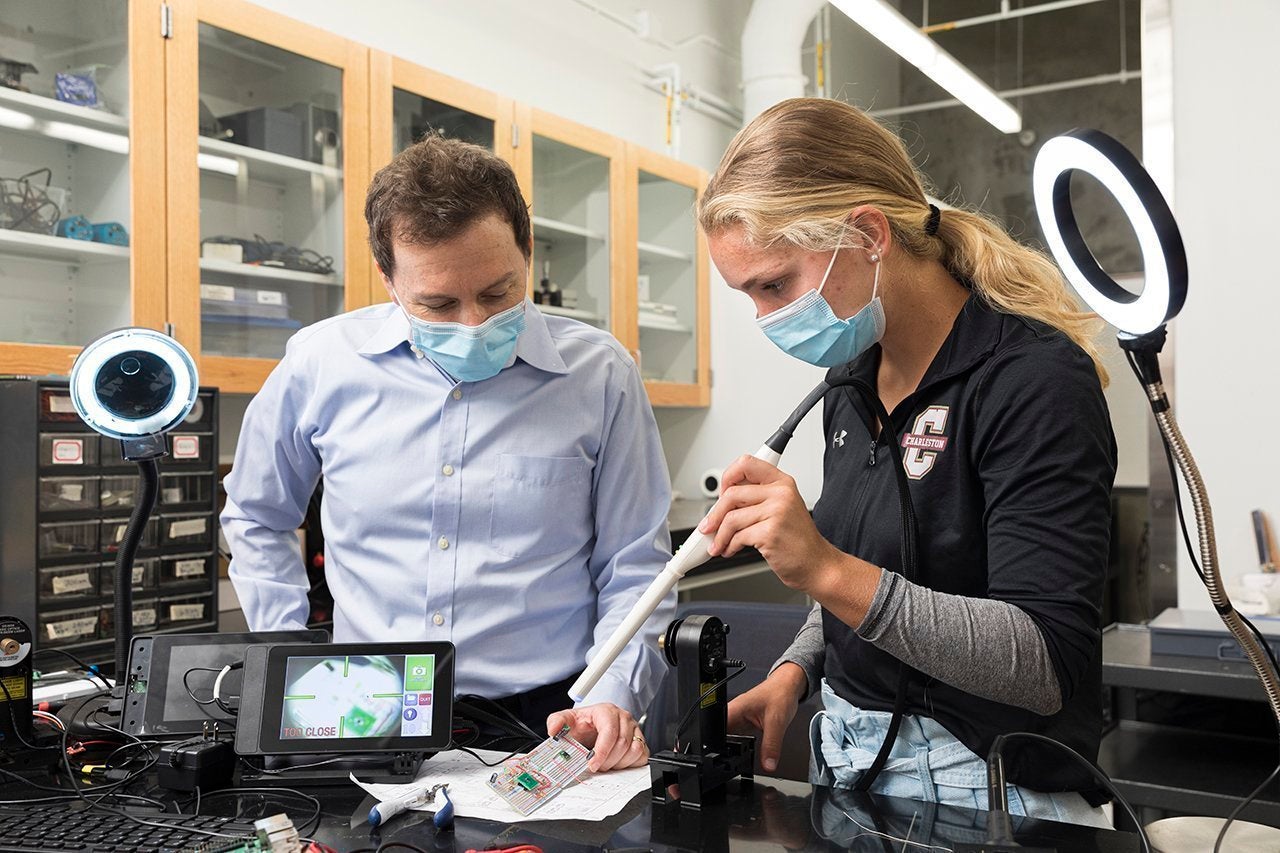As an astronomer whose research focuses on the imaging of extrasolar planets many light years away, Joe Carson spends a lot of time looking at distant celestial bodies. But his research and the imaging tools he and his team have created are grounded much closer to home. In fact, Carson credits the talent and skill produced right here at the College of Charleston for the development of medical imaging instrumentation that is now being used to look at human bodies on Earth.
That’s because his startup, Pensievision – which primarily employs CofC alumni and students – applies technologies from NASA’s space telescopes to produce high-resolution medical 3D images. The work includes their invention of the world’s first portable 3D colposcope to assist in early-stage detection of pre-cancer cervical lesions.
“The long-term goal is to prevent cervical cancer deaths in some of the most underserved communities in the world,” says the associate professor of astronomy, who last year was awarded a $400,000 National Institutes of Health (NIH) grant to support a 20-patient study of the 3D-imaging camera that Carson and his team created. The funding will allow Carson to travel to Kenya to meet with women’s health leaders there and prepare for an intended follow-up patient study in sub-Saharan Africa. “The grant will have far-reaching impact.”
But, as immense an impact as this technology might have across the world, it’s the impact that the work is having on the students and alumni that he’s especially proud of. “They get to see how things all come together – all the different angles, from design to diagnosis – to make a difference in medical research.”

Jenna Snead (left) and Joe Carson
Junior astrophysics major Jenna Snead (pictured) agrees that the independent research project she has done with Carson and Pensievision has all sorts of applications – including in the astrophysics research that she plans to do after college.
“While doing a medical imaging project seems out of left field, astrophysics relies on a lot of the same imaging techniques, which will help me in any future astronomical imaging projects,” says Snead, who won the School of Sciences and Mathematics Best of the Best Award and the Department of Physics and Astronomy Best Poster Award in 2020 for her research with Carson. “Working with software and computer programming is indispensable to physics research.”
It’s these kinds of connections that make Carson so excited about the hands-on learning his students get through this research – and how valuable that is to the future workforce.
“The College produces smart, creative, hardworking innovators – and its graduates are bringing that out into the world,” he says. “The students and graduates of the College really are the lifeline of Pensievision.”
In addition to producing a smart and skilled staff for Pensievision, the College has supported Pensievision through partnerships and grant applications, too.
“I cannot emphasize enough CofC’s role in partnering to save lives and to create high-paying jobs in the Lowcountry,” says Carson, adding that in recent years Pensievision has been among the top employers of students graduating from the Department of Physics and Astronomy. “And with CofC’s engineering program, I think that this partnership will continue to expand.”




